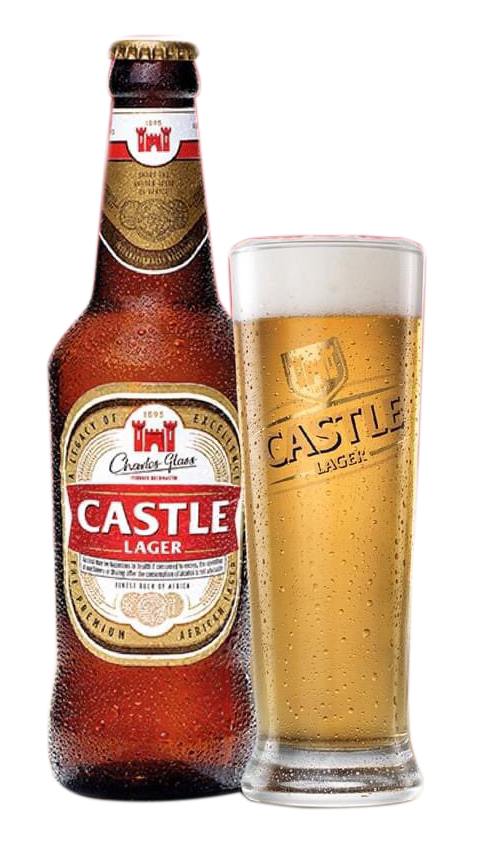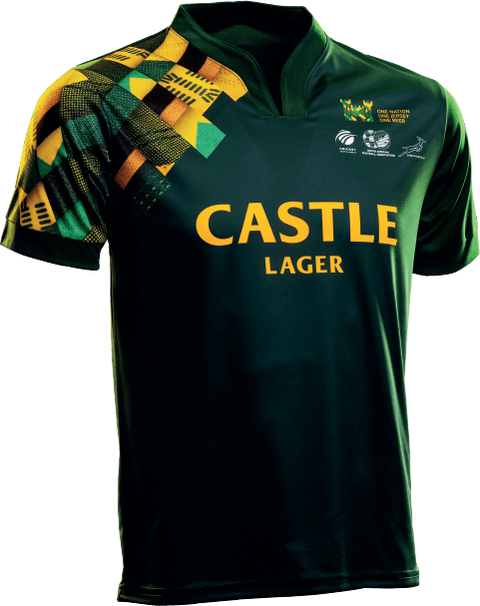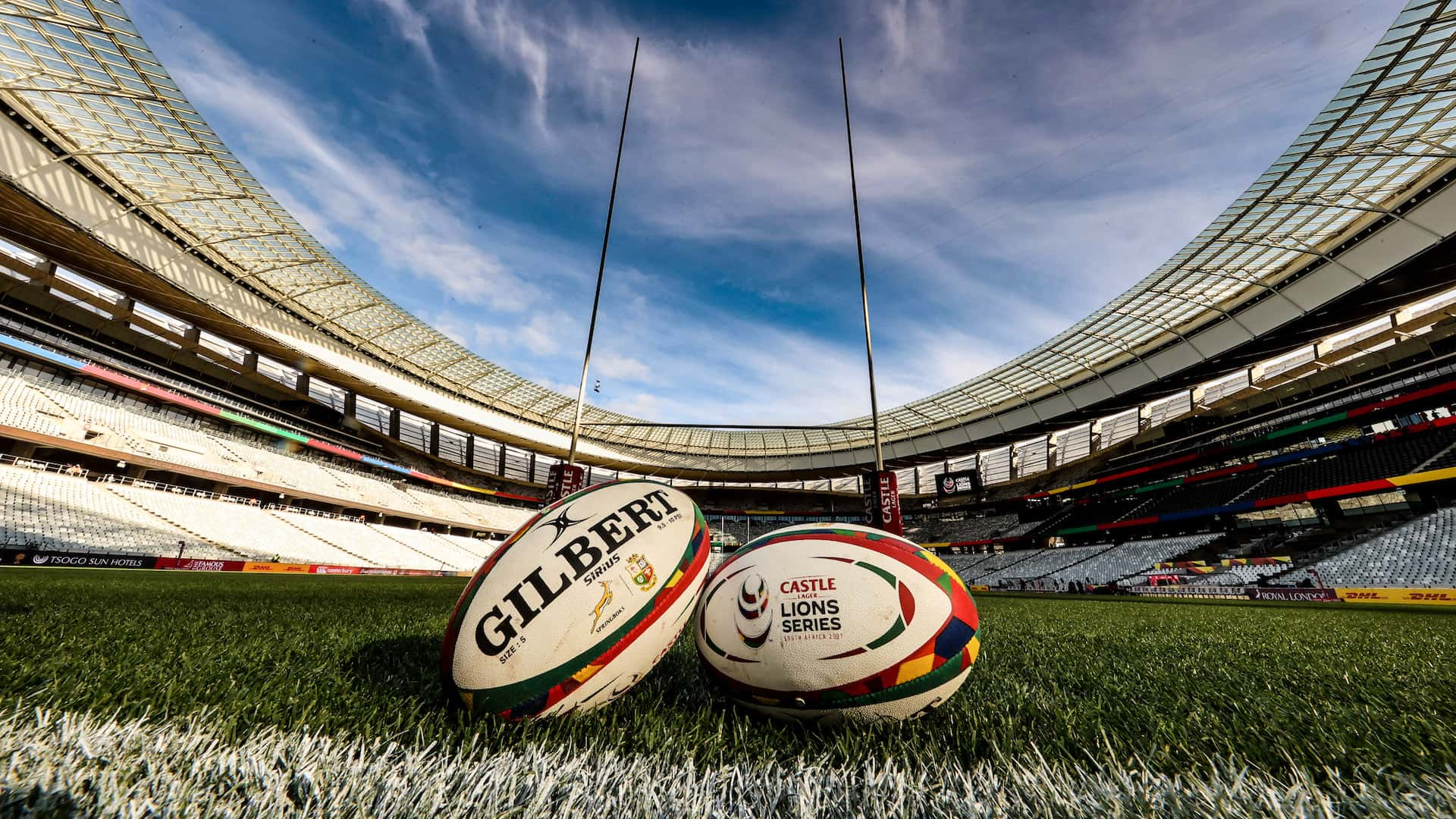While cricket is the number one sport for Aussies, rugby is more than a game for South Africans and New Zealanders. It’s a matter of national pride.
Branding
the jersey
CHEERS | BEER


1995 was a red-letter year for rugby. Most South Africans will appreciate that it was the year the country first competed in – and won – the World Cup. But it was events after the tournament which shaped the commercial development of the game.
With moves towards professionalism driven by the powerhouses of world rugby, New Zealand, Australia and South Africa, the game changed with players able to make a career out of the sport. Prior to that it had been a strictly amateur game, even though tales of ‘pocket money’ in boots in the changing sheds or offers of employment where players didn’t necessarily have to clock in or get their hands dirty were the order of the day.
But in the late 90s, the first folks to grasp the commercial opportunities attached to the oval ball game were the big beer brands. It’s why SAB’s Castle Lager and Lion Lager were emblazoned across the Springbok jersey, when the All Black jumper boasted the Steinlager logo and why proud Queensland brewer Castlemaine stamped their bold four Xs onto the Wallaby players’ chests.

The value of branding cannot be underestimated. After all, cutting its brand association with controversial rapper Kanye West – Ye – was set to cost international sports brand adidas R4.5 billion. “After a thorough review, the company has taken the decision to terminate the partnership with Ye immediately, end production of Yeezy branded products and stop all payments to Ye and his companies. adidas will stop the adidas Yeezy business with immediate effect. This is expected to have a short-term negative impact of up to €250 million on the company’s net income in 2022 given the high seasonality of the fourth quarter,” a statement by the company read.
But the whitewash defined sports fields are a far cry from the fickle land of celebrity endorsement. A 2016 report on News24.com noted that there were “cheers all round as SAB extends SA rugby deal”.
The Castle Lager brand association with SA Rugby was extended until 2021, at which time it would have been a 23-year-long relationship. Lion Lager was the initial sponsor of SA Rugby in the professional era but in 1997 Castle Lager became the brand of choice. The year 2000 was when Castle took over as the Springbok sponsor, while in 2011 it was the title sponsor for the Tri-Nations series.
“SAB has been a loyal partner to SA Rugby dating back to the days when rugby was an amateur sport, so it gives me great pleasure to continue our association with them,” said Jurie Roux, CEO of SA Rugby. “Their commitment to rugby and sport in general in South Africa is commendable, and it has certainly been a mutually beneficial relationship for both organisations over the years.”
The deal ensured that Castle Lager was the title sponsor of incoming series, the Castle Lager Rugby Championship and the Castle Lager outgoing tour – as well as the all important revenue generation that accompanied the somewhat controversial Castle Lager British and Irish Lions tour in 2021.

In the early days of SuperRugby, the Queensland Reds were also sponsored by XXXX, a tradition that continues, albeit less overtly or ostentatiously than before. Advertising real estate is no longer limited to the front chest of the jersey: the collar, sleeves and back, along with the shorts are considered prime spots for sponsors logos nowadays. The brand continues its association with both rugby codes, union and league, with the Queensland Reds having the branding on a shoulder tab for the 2023 season while their league counterparts, the Queensland Maroons, have the branding on the shirt sleeve.
In June 2022, XXXX brand director Chris Allan said the beer brand had “been a proud Queenslander for 144 years. “The Maroons are running out on the pitch representing all of the regions and we wanted to bring some recognition of this to the Origin arena.
“However you celebrate Origin this year, whether it be with mates at home or at the pub with a XXXX in hand, cheer on the Maroons and all the towns right across the state that fill us with that Queensland pride.”
Although Castlemaine is the brewer, XXXX as a brand came into existence in 1924 – and is apparently “a throwback to the long standing tradition of using Xs to indicate the strength of an ale,” Wikipedia states.
Further south, across the Tasman Sea, New Zealand’s All Blacks made headlines in 2021 with its multi-million dollar deal with Ineos. That sponsorship succeeded adidas and its long-term original sponsor, Steinlager.
As the beer’s website states: “At the heart of Steinlager is a beer that champions New Zealand greatness and national pride in the face of a challenge. Steinlager Classic was born from a challenge. In 1958, the infamous Black Budget cut beer imports and the challenge was put out to New Zealand brewers to produce a lager of international quality. The response was Steinlager Classic. Internationally recognised with countless awards on the world stage and envied by brewers the world over.”
There’s an interesting timeline highlighting the beer brand’s achievements and associations through its history. Rugby and sailing have been the biggest and strongest attention grabbers, especially the latter when in 1995 the upstart New Zealand sailors beat their more fancied rivals to win the prized America’s Cup.
“Sales of Steinlager soar as Team New Zealand wins the America’s Cup in San Diego. Team New Zealand celebrated an outstanding 5-0 victory over Dennis Connor’s ‘Young America’. Team New Zealand was skippered by the great Sir Peter Blake, and New Zealand became only the second country in 144 years to take the America’s Cup from American shores.”
The bond with the most successful rugby franchise in the world, the All Blacks, began in 1987 – the same year the team won the maiden World Cup, the first of their three victories. Steinlager even managed to snag the rights as the official sponsor of the 1991 Rugby World Cup when it was held in Britain, something Guinness did when the tournament was held in Wales in 1999.
In a foreboding move in 1994, however, the team had to remove the Steinlager logo on their jerseys when playing in France due to local liquor advertising laws. A similar row broke out in the 2003 World Cup in Australia when tournament organiser, Rugby World Cup Ltd, decreed that all sponsors logos on national team jerseys were to be banned – both on the playing field and training pitches. There was an outcry at the time, particularly from England and Scotland on behalf of their sponsors O2 and Famous Grouse, but the ruling still stands to this day.
Ironically, sports marketing experts are of the opinion that this forced marketing teams to innovate and create campaigns that resonate with audiences, particularly in the digital sphere. The bold beer branding might no longer be emblazoned on muscular chests, but there is little doubt that the golden liquid remains the beverage of choice for the millions of supporters of the game worldwide.
